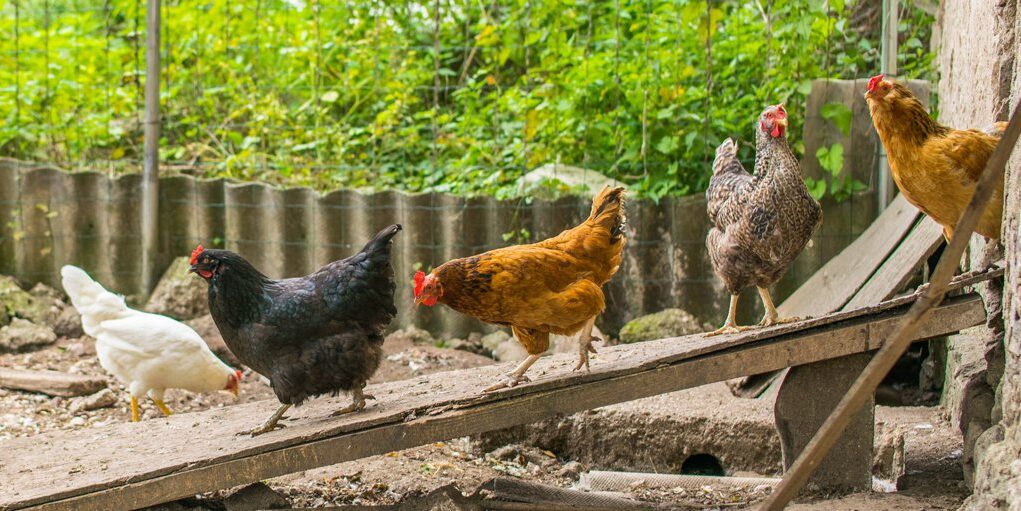Chickens are beloved not just for their companionship, but also for their reliable egg production. Unfortunately, this productivity can be significantly affected by parasitic infestations. The presence of parasites can lead to a variety of health issues in poultry, directly impacting their ability to lay eggs effectively. Let’s delve into how parasites influence egg laying, and what can be done to mitigate their effects.

What Are Parasites?
Parasites are organisms that live on or inside a host, obtaining nutrients at the host’s expense. In chickens, common parasites include mites, lice, and worms. Once these invaders establish themselves, they can lead to decreased productivity and health issues in chickens.
The Direct Impact of Parasites on Egg Laying
Infestations by parasites like red mites and northern fowl mites are notorious for their negative impact on egg production. These ectoparasites feed on the blood of chickens, leading to blood loss, stress, and a decrease in overall vitality. Consequently, this affects the chicken’s ability to lay eggs regularly and healthily. According to [Pete and Gerry’s blog](https://www.peteandgerrys.com/blogs/field-notes/egg-nutrition-facts), maintaining optimal chicken health is crucial for egg production.
Internal Parasites and Their Effects
Worms are common internal parasites affecting chickens. Species such as roundworms and tapeworms can cause nutritional deficiencies by absorbing nutrients meant for the host. This malnutrition manifests in the chicken’s reproductive system, often resulting in fewer eggs being laid or substandard egg quality.
Subclinical Infections
Not all parasitic infections cause overt symptoms. Subclinical infections can lurk undetected, subtly affecting the chicken’s overall health. Over time, these low-level infections build up, slowly decreasing egg output.
Preventative Measures
Keeping a clean living environment is the first step in managing and preventing parasitic infestations. Regular cleaning of coops, providing clean bedding, and rotating pastures can significantly reduce parasite presence. Employing sanitation measures and using herbal remedies are also effective strategies.
The Role of Diet
Implementing an enriched diet can bolster a chicken’s immune system, making them more resilient to parasitic attacks. A balanced intake of protein, vitamins, and minerals is essential for maintaining robust health and high egg production.
Learn more about improving your flock’s diet in our article on [best laying hens for beginners](https://chickenthingsandmore.com/best-laying-hens-for-beginners/).Read on best breeds
Treatment Options
If you suspect your chickens are suffering from a parasitic infestation, early intervention is key. Consult with a veterinarian to get an accurate diagnosis. Treatment may include dewormers or medicated feed formulated to target specific parasites.
Natural Remedies
Some flock owners opt for natural treatments to combat parasites. Diatomaceous earth, garlic, and other natural supplements can be mixed with feed to help ward off infestations.
Monitoring and Managing Stress
Stress is a significant factor in the health and productivity of chickens. High levels of stress can exacerbate the effects of parasites, reducing egg yield. Ensuring your chickens have enough space, socialization, and interaction times can significantly enhance their quality of life.
Managing Stress Through Environmental Enrichment
Consider introducing toys or other enrichment activities to reduce stress levels. Providing dust baths and opportunities for foraging can also keep hens engaged and happy.
The Importance of Regular Health Checks
Carrying out frequent health checks on your chickens can help catch infestations early, maintaining steady egg production. Look for signs of feather loss, pale combs, or lethargyall indicators of possible parasitic issues.
For more insights on identifying laying issues, read [why aren’t my chickens laying eggs?](https://chickenthingsandmore.com/why-arent-my-chickens-laying-eggs-6/).
The Connection Between Parasites and Overall Chicken Well-being
Parasites not only impact egg-laying abilities but also adversely affect overall chicken health. A healthy chicken is a productive chicken. Ensuring your flock is free from parasites will help ensure consistent egg production. Consider cross-referencing sources like [Backyard Chickens](https://www.backyardchickens.com/threads/what-do-you-do-with-excess-eggs.1599800/) for community advice and preventive measures.
Conclusion
Ensuring a clean environment, proper nutrition, and regular health checks are excellent strategies for managing parasites and sustaining egg production. With timely intervention and continuous care, you can keep your flock healthy and productive.

FAQ
How do parasites affect egg production in chickens?
Parasites can cause stress, blood loss, and nutrient deficiencies, all of which lead to a decrease in egg production.
What are common signs of parasitic infections in chickens?
Look for symptoms like feather loss, pale combs, reduced energy, and decreased egg production as signs of potential parasitic issues.
What steps can be taken to prevent parasite infestation?
Maintaining cleanliness in coops, employing rotational grazing, and providing a balanced diet are effective measures for preventing parasite infestations.
This article contains affiliate links. We may earn a commission at no extra cost to you.










